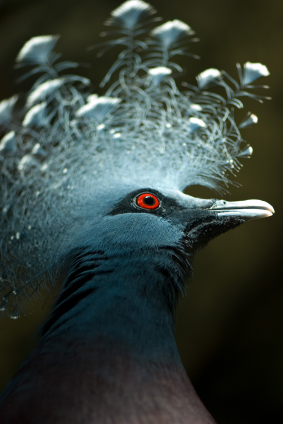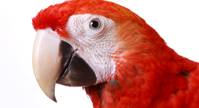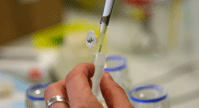Pigeon Circovirus
ANIMAL GENETICS OFFERS GENETIC TESTING FOR PIGEON CIRCOVIRUS. TESTING CAN HELP IDENTIFY THOSE BIRDS INFECTED WITH THE VIRUS.
Description:
Pigeon Circovirus (PiCV) is a circular, single-stranded DNA virus of approximately 1.76–2.04 kb in size, contained within a non-enveloped protein coat. The viral genome of PiCV (also known as Columbid Circovirus or CoCV) has been found to share low-level DNA homology with Psittacine Beak and Feather Disease (PBFD) virus. The virus is classified as a member of a family of viruses known as Circoviridae and the genome of PiCV is similar to other members of the family.

Infection with Pigeon Circovirus (PiCV) has been associated with Young Pigeon Disease Syndrome (YPDS), which is considered to be a multifactorial disease.
Infections of young racing pigeons with Pigeon herpesvirus (PiHV), Fowl adenovirus (FAdV) and Pigeon circovirus (PiCV) are reported frequently. The role of these viruses in the pathogenesis of YPDS is generally accepted. Young pigeons in the nest that become infected will become thinner and perhaps die. Symptoms such as lethargy, no appetite, weight loss, diarrhoea, respiratory problems and low flight performance are very common with this disease. Affected pigeons may become very ill or only slightly ill, depending on the severity of the secondary infection and also the age of the pigeon when it was infected with the virus (e.g., paratyphus presents bigger problems compared with Trichomonas infection). Sometimes you can see that the feathers don't grow like they should, but there is generally no evidence that this problem is caused by this virus. There are also plenty of infections that present no symptoms.
Transmission:
If one or more bacterial isolates from a bird have been identified, the next step is to conduct antimicrobial sensitivity testing. Drug-impregnated discs are placed in contact with colonies of each previously identified microbial isolate. The effectiveness of each antimicrobial is determined by measuring the zone around each disc in which the growth of the organisms have been completely inhibited. Generally speaking, the larger the zone, the more effective the antimicrobial. Those antimicrobials that are "effective" can be selected by the veterinarian and a drug therapy with which to treat the patient. This type of antimicrobial testing is only done for bacterial isolates and is generally not done with fungal isolates.
Symptoms:
PiCV infects organs of the immune system that play an important role in disease resistance (these include the lymphoid organs, such as the thymus, the spleen, bone marrow and bursa of Fabricius). Once these organs become infected, the pigeon is not capable of creating the proper resistance against even the most common and harmless of infections, and it is possible that they may fail to create any immunity at all.
Sample Type:
Ideal samples are whole blood in EDTA (purple top) or ACD (yellow top) tubes, or freshly-mixed tissue sample frozen or in alcohol. Environmental testing using swabs of aviaries, countertops, fans, air-filters, nest-boxes, etc. is extremely effective in determining the presence of PiCV DNA in the environment.
Limitations:
As with any genetic test, new mutations may occur in the viral genome that could affect the assay. Therefore, it may be difficult to detect all subtypes. Sample collection plays a pivotal part in the overall accuracy of the test, so please use caution and follow the instructions carefully.
Submit a Sample for Testing:
To submit a sample download a test submission form at Downloads
Cost per sample is $24.50. Please see our fee schedules below for bulk and combination rates.










